Wild Shores Read online
Page 11
Emily rose, photographed the clutch, and pulled out a roll of yellow caution tape from the side pocket of her cargo pants. She found a few sticks and taped off the area around the nest. “I’ll come back and screen it later.”
They walked a mile in both directions, but Emily didn’t find any other signs of nesting. While they roamed, Gem took stock of the shorebirds, all of them native to the area. That would change in a day or two when the migrant flocks began arriving. She mentally mapped out sites for her cameras and blinds.
“Come back for some tea,” Emily said, interrupting Gem’s mental planning.
Gem almost declined, but she was unusually restless, and the thought of rattling around in her cabin or studying flight paths on her computer decided her. “Sure, for a little while. I’ve got to catch up on my notes and start charting—”
“I know, I know.” Emily laughed. “Me too. But let’s catch up on us first. We’re way behind in emails.”
“Deal.”
After a short walk in companionable silence, Gem relaxed at the two-person wooden table under the window in Emily’s kitchen area, while Emily made tea and set out a box of crackers and a block of cheese.
As they drank and snacked, Gem asked, “So? How’s Jeremy?”
“He’s great,” Emily said. “The kids are great. I love them like crazy, and I’m so happy to be here for the next few weeks I could burst into song.”
Gem laughed. “I’ll give you six hours before you’re Skyping with them.”
“Too late, already did that.” Emily grinned. “How about you? Still seeing Kim?”
Gem started, the question seeming to recall some former life. She hadn’t thought about Kim since—well, since she’d met Austin at the airport. God, what was she going to do about Kim?
Emily cocked her head. “I guess that’s not a simple yes-or-no answer.”
Gem rubbed her face. “Sorry. My mind’s a little slow.”
“That’s okay. If you don’t want to talk about it—”
“No, well…no, not really, but mostly…I don’t know.” Gem laughed ruefully. “God, I’m a mess. Yes, I’m still seeing her, but it’s not really going anywhere.”
“Do you want it to?”
“I never really thought about it.”
“Maybe that’s an answer.”
“Yes, maybe you’re right.” What had she been doing with Kim, and what was she going to do now? She hadn’t broken any promises by sleeping with Austin, and she wasn’t entirely certain Kim would even care, but she did. Not because she was guilty, but because she realized she’d been cheating both of them in different ways. She didn’t love Kim, and though Kim never complained, she deserved someone who cherished her. And she deserved—well, she wasn’t really certain. She wasn’t even certain what she wanted any longer.
“I can hear the wheels turning,” Emily said.
“Just soul-searching,” Gem said.
“Sounds serious.”
“I don’t know. It might be.” Secretly, she knew everything had already changed.
❖
Rig 86, or Red Devil as the 60,000 square-foot semisubmersible rig had been dubbed by its crew, rose from the indigo waters on four bright red pillars like a giant’s Erector set. The helipad was a small green hexagon extending over the water from one corner, ringed in white with a big white circle in the middle enclosing a capital H, as if the chopper pilot wouldn’t know where to set down. Every other square foot of the surface was piled several stories high with containers, cranes, engines, drill heads, pipes, hoses, and the myriad cables and winches that connected the above-sea platform to the underwater pontoons. Red lifeboats resembling children’s bath toys swayed from cables along the side of the rig.
Austin thumbed her mic. “Has the crew been evacuated?”
“All but the essentials,” the operations team leader responded. The OTL, Brian Reddy, was a sun-bronzed fortysomething guy with flint-gray eyes, a lean clean-shaven face, and a rangy body in a black canvas flight suit and work boots. Austin had seen a dozen like him on oil rigs everywhere: no-nonsense, hard-eyed men and occasionally women, who were responsible for the lives of dozens of platform personnel and drill crews, all sitting on millions of gallons of flammable fuel that, if ignited, could kill them in a heartbeat.
“Where’s the command post?” Austin asked. The drill crew would be working the rig, trying to stop the leak, but the geologists, salvage teams, boom crews, and reps from the company would be waiting a safe distance from the rig, just in case, for the signal to start active containment protocols.
“On the lead ship,” Reddy responded, pointing out the window. “Set and ready to go if we need them.”
As the bird settled onto the LZ, Austin counted four ships ringing the platform. The surface of the sea was deceptively calm after the previous day’s storm, five-foot waves breaking indolently against the pylons, no sign of a glimmering oil sheen on the surface.
“Tatum is here with the crew,” Reddy added.
No surprise there. No way would Tatum leave the rig, unless it was actively on fire. Reddy slid the door open and gestured for Austin to go ahead. She jumped down and sprinted across the deck to where Tatum waited with a woman. Ray Tatum had the size and temperament of a bantam rooster—five feet six inches of feistiness and proud of it. Austin held out a hand. “Hey, Ray.”
“Austin,” he said gruffly. He gestured to the brunette, a woman about Austin’s age in a black leather jacket, tapered black pants, and low-heeled ankle boots who managed to look stylish and entirely capable. “This is Dr. Claudia Spencer, our weather girl.”
Austin raised an eyebrow in Dr. Spencer’s direction.
Spencer just grinned and held out her hand in apparent good humor. “Good to meet you, Austin. Ray is a little peeved at me this morning because I haven’t been able to predict the weather by gazing at the stars.”
Reddy smothered a laugh and Tatum grunted, but Austin caught the tail end of a brief grin on Ray Tatum’s grizzled face. So Tatum liked her.
Austin shook her hand. “I’m sure once you get a fix on the sun, you’ll be able to do that.”
“Undoubtedly.”
Claudia Spencer was clearly unflappable and used to dealing with roughnecks who put about as much stock in science as they did in soothsayers. The only things Tatum paid attention to were the direction of the prevailing winds, the color of the sky, and the rock of the pontoons under his feet. He was old school, but smart enough to listen to the rest of his team when things got critical. Hopefully they weren’t there yet.
“Well, now that we’re all cozy, come on over to the office,” Tatum said, “and I’ll fill you in. We’ve got some coffee that you can probably use.”
“Thanks,” Austin said and followed the trio to a rectangular metal container that served as the rig’s operations center. Tatum kicked out a chair at the head of a battered metal table and sat down with a grimy coffee cup while the others grabbed mugs. Austin waved off the coffee when Reddy offered her some. It would be bad, and until she had to, she intended to avoid it.
“I’ll make this short and sweet,” Tatum said, “because no news is good news, and I don’t fucking have any good news.”
Austin said nothing. The time for wishing was over. All she could do now was deal with the facts.
“We shut as many valves down as we could to isolate and slow the breach,” Tatum said. “We’ve gotten all the mileage we can out of that.”
Reddy said, “We’re down to losing maybe 30,000 barrels of oil per day, but at that rate, if we can’t slow it down more, we’re going to have surface oil, no doubt about it.”
“Dispersants won’t work?” Austin asked.
“Can’t count on it, not this close to shore,” Tatum grunted.
“And not if we have the weather I expect,” Claudia said. “The waves will make the emulsions unstable and hard to monitor.”
“Are you sanding the well yet?” Austin inquired. One of the first things t
he drill crew would do was pump mud into the well to slow the flow, and if that didn’t work, add metal balls to the mix, a crude but effective way of simply blocking the channel that ordinarily allowed oil to flow to the surface. If the flow could be reduced enough, the oil reaching the surface could be burned as it appeared, and kept from encroaching on land.
“We will be today,” Tatum said, a muscle the size of a Ping-Pong ball bunching at the angle of his jaw. Fouling the well was a concession he obviously didn’t want to make.
“What about drilling relief wells?” If they could take some pressure off the main well through secondary wells nearby, they might be able to contain the breach and preserve the oil.
“The rock boys and girls are looking for the best sites for us to do that,” Tatum said, referring to the geologists, “but that’s going to take time we don’t have. Secondary measure if it gets bad.”
Meaning if the flow increased or got away from them and the leak went on for weeks or months. Like it had in the Gulf. That was a nightmare she wasn’t ready to contemplate.
Reddy spoke up. “We could skim and burn if it hits the surface. We’ll get some air pollution, but that shouldn’t provoke too much of a fuss.”
“Both of those approaches require low wind and calm seas,” Claudia said in a tone so modulated and controlled she ought to be anchoring a network news show. “And even without stargazing, I can tell you neither of those things are likely. A tropical storm is coalescing and headed north. Projections have it reaching us sometime in the next two days, and it’s growing in strength every hour.”
Tatum made some remark not fit for ordinary mixed company. “Well, if we were a hundred and fifty miles out, I’d be a lot less worried. But we’re practically sitting on the fucking shore, and if the currents pick up and the wind starts blowing, we’re gonna have oil all up and down the coast. God damn it.”
“We need to start laying down the booms,” Reddy said.
“Before we do that,” Austin said, “we’ll have to make a public announcement about the breach. There’s no way we can keep that quiet.” She glanced at Tatum and Reddy. “How long before we know if you can get the flow substantially reduced by pumping the well?”
“Twelve hours, maybe.”
Austin glanced at Spencer. “Ahead of the storm, you think?”
“It’ll be close. If you want to deploy the booms, you’ll need to do it before the storm rolls in or they won’t be effective.”
Tatum lifted a shoulder. “We’re just gonna do what we do.” He speared Austin with a glance. “You and the other desk jockeys can decide what to tell people about it.”
Austin didn’t take offense, even though she was far from a desk jockey. She didn’t blame Tatum for tossing the hot potato in her direction. That’s why she was there, after all. “I’ll make some calls.”
Tatum and Reddy stood up. “We’ll get back to work.”
The two men left, and Claudia rose to dump her coffee in the sink.
“Did you actually drink that?” Austin asked.
“No, I just faked it. Makes me look like one of the boys.” Claudia smiled and cradled her cup between long, slender fingers.
Yep, camera-ready beautiful. It would take more than drinking deadly coffee to make her look anything but gorgeous, but Austin wasn’t going to mention that. Spencer leaned against the counter, crossing her long legs at the ankle. She studied Austin frankly, and Austin waited.
“I take it you’re the spin doctor in all of this,” Claudia finally said.
“More or less. I’m hoping I won’t have a lot to do.”
“So am I. You do know what’s on shore.”
“You mean the sanctuary?”
She nodded. “Any shore town is a problem, but this magnifies the difficulties a hundredfold.”
“How is it you know about it?”
She laughed, although she didn’t appear amused. “My ex was a rabid birdwatcher. I’ve actually been here a couple of times.”
“I’m surprised you’re here on the rig. Shouldn’t you be on the ship? It’s safer there.”
“Now you sound like Tatum. You’re here, why shouldn’t I be?”
“Point taken. But…?”
“I like to see how the weather is affecting the stability of the platform. I can give the company a better read on the potential effects of the wind and current that way.”
“Pretty gutsy.”
“Oh, I’m not that brave, believe me. I’ll be the first one off if things start to deteriorate.”
Austin was pretty sure Spencer knew there might not be enough time if that happened, but none of them ever talked about that.
Chapter Thirteen
Gem got back to her cabin late morning, stored her clothes in the narrow four-drawer dresser next to the twin-size bed tucked into an alcove adjoining the bathroom, and set up her computer on the table that served as desk and dining table. Fortunately, the research center had good Internet connections and had installed relay towers two years before, so she had the bandwidth she needed for her satellite and tracking programs. Many of the flocks she followed had adults or fledglings who had been tagged elsewhere in the country. Most naturalist organizations were linked into the national database, and members tagged birds in the watch groups, providing information such as location, estimated age, nesting behavior, and on occasion, deaths. By accessing the national network of data transmissions, she could locate tagged birds within flocks migrating up and down the flyway.
When she first logged in, her computer screen looked like something out of an air-traffic controller’s nightmare, with streaming data points that at first glance appeared random and chaotic. However, when she filtered for species and isolated those, discernible pathways became evident, as flocks coalesced and moved en masse along their migratory routes. She filtered for saltmarsh sparrows and anticipated, from the recent logged locations and rate of movement, they would be arriving within the week. She opened another window on her browser and checked the weather forecast. After scanning the first update, a knot of anxiety settled in her midsection. The storm yesterday had been only an advance warning.
A tropical storm was forming off the Bahamas, and forecasts were for northwest movement over the next two to four days. Depending on the trajectory, the heat rise from the ocean, condensation, wind speed, and a host of other factors, the storm could come ashore close to them as a lot of wind and rain or something much more dangerous. The salt marshes along the Eastern Seaboard were already endangered from erosion from rising sea levels, and a storm like this would keep the birds away, or if they’d already descended, would put them in harm’s way. The timing couldn’t have been worse.
Gem’s cell rang and her heart leapt. Austin. She caught herself in the next instant and chided herself for the whimsy. Austin didn’t even have her phone number, hadn’t asked for it, which ought to tell her something about what the night had meant to her. Of course, she hadn’t asked for Austin’s either.
She checked the readout, still a little hopeful. Alexis. Smiling despite the lingering disappointment, she answered. “Hi.”
“Hi, yourself,” her sister said. “Where are you?”
“At the sanctuary. I got in this morning.”
“I’m surprised you made it with the weather.”
“Long story,” Gem said, preferring not to recount once again her day with Austin. Even talking about it stirred an ache that she really wanted to avoid. “Where are you?”
Alexis, a commissioned officer and medic in the Coast Guard, was stationed across the sound from the sanctuary as part of the search-and-rescue team.
“On duty. Routine shore patrol right now. Things are pretty quiet. The storm has kept even the fishermen ashore.”
“It looks like you’re going to be busy pretty soon.”
“We’re gearing up for it,” Alexis said. “If the projections hold, you’re going to be right in the path. Are you planning on staying?”
“Of course. We�
��ll be fine here.”
“I’ve seen those cabins you guys sleep in,” Alexis said disdainfully. “A good huff and puff, and they’re going to be kindling.”
Gem laughed. Older sisters were a real pain, especially ones that weren’t that much older but liked to act like they were. Alexis had always been protective of her growing up, when she wasn’t giving her a hard time. They’d never been particularly competitive about grades or social connections or anything else, but sometimes following in her big sister’s successful footsteps had been a challenge all the same, especially since Alexis was naturally the outgoing one. Alex loved excitement and had always been something of a daredevil. She’d always loved the sea—its challenges and dangers—and had chosen her career early and never wavered. Gem was quieter and more contemplative. Hence, she was the landlubber, and the fanciful one.
“You’ll be careful, won’t you?” Gem didn’t have to say out loud what they both knew—Alexis would be the one at risk during the coming storm, answering distress calls from ships that were bound to be caught on the open water no matter how many warnings were issued. Sea rescues in high winds and rolling swells had brought down more than one helicopter. Gem pushed the worry away—Alexis and her team were experts. She’d be fine.
“Always am,” Alex said lightly. “You too, okay?”
“Absolutely. And when you get a break, let’s do dinner.”
“Will do. Love you. Bye.”
“Love you,” Gem murmured as the connection disappeared. She set her phone aside and sighed. As close as she was to Alexis, she’d never talked to her much about her personal life, another result of bad timing. Alex had always known she was a lesbian and had come out when she was fourteen. When Gem finally realized she and Alex shared the same interest in women, they’d already been living apart for years and had missed the chance to share stories about girlfriends. Plus, Alexis had never liked Paul, had actively tried to dissuade Gem from marrying him, but she hadn’t listened. Alexis had been the only one in the family who had objected to him. Everyone else, most especially her parents and brother—who had been Paul’s best friend and probably still was—thought the match was perfect as well as destined. Knowing Alexis had been right in warning her away had made it hard for her to talk about what had happened.

 Secrets of the Heart
Secrets of the Heart Clinical Trials
Clinical Trials Blessed Benediction
Blessed Benediction Happy, Happy Birthday, Baby
Happy, Happy Birthday, Baby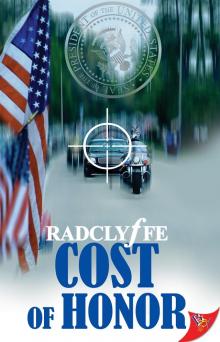 Cost of Honor
Cost of Honor Love on the Night Shift
Love on the Night Shift Top of the Class & Bonus Night
Top of the Class & Bonus Night You Don’t Bring Me Flowers
You Don’t Bring Me Flowers When Dreams Tremble
When Dreams Tremble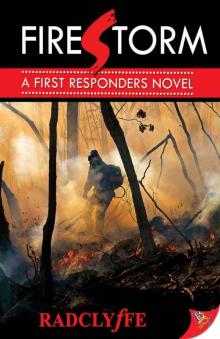 Firestorm
Firestorm The Color of Love
The Color of Love Women of the Dark Streets
Women of the Dark Streets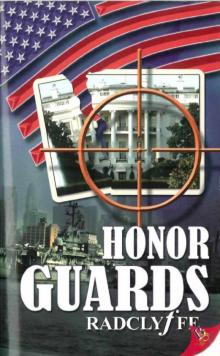 Radclyffe - (Honor 4) - Honor Guards
Radclyffe - (Honor 4) - Honor Guards Honor 03 - Love And Honor
Honor 03 - Love And Honor Love's Masquerade
Love's Masquerade Love After Hours
Love After Hours OMGQueer
OMGQueer A Matter of Trust
A Matter of Trust Honor Under Siege
Honor Under Siege Best Lesbian Romance 2009
Best Lesbian Romance 2009 Honor 06 - Honor Under Siege
Honor 06 - Honor Under Siege Best Lesbian Romance 2012
Best Lesbian Romance 2012 Breathless
Breathless Nick of Time
Nick of Time The Lonely Hearts Club
The Lonely Hearts Club Price of Honor
Price of Honor Word of Honor fr-7
Word of Honor fr-7 Winds of Fortune (Provincetown Tales Book 5)
Winds of Fortune (Provincetown Tales Book 5) Above All, Honor
Above All, Honor Radclyffe - Honor 06 - Honor Under Siege
Radclyffe - Honor 06 - Honor Under Siege Distant Shores, Silent Thunder
Distant Shores, Silent Thunder Word of Honor
Word of Honor Word Play
Word Play Fated Love
Fated Love Homestead
Homestead Radical Encounters
Radical Encounters Heart Stop
Heart Stop Code of Honor
Code of Honor Myth and Magic
Myth and Magic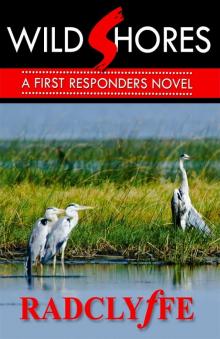 Wild Shores
Wild Shores Oath of Honor
Oath of Honor Desire by Starlight
Desire by Starlight Love Burns Bright
Love Burns Bright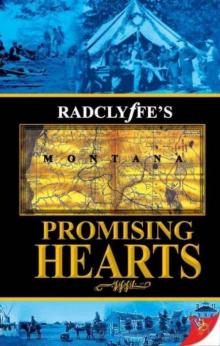 Promising Hearts
Promising Hearts Helplessly Hers
Helplessly Hers Love & Honor h-3
Love & Honor h-3 All About Us
All About Us Honor 01 - Above All Honor
Honor 01 - Above All Honor Honor 05 - Honor Reclaimed
Honor 05 - Honor Reclaimed Innocent Hearts
Innocent Hearts Taking Fire
Taking Fire In Pursuit of Justice
In Pursuit of Justice Love's Melody Lost
Love's Melody Lost Passion's Bright Fury
Passion's Bright Fury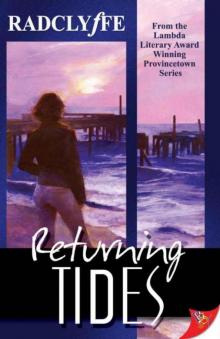 Returning Tides
Returning Tides Change of Pace
Change of Pace Safe Harbor
Safe Harbor Night Call
Night Call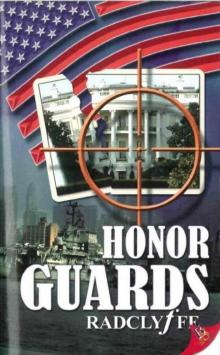 Honor 04 - Honor Guards
Honor 04 - Honor Guards Honor Bound
Honor Bound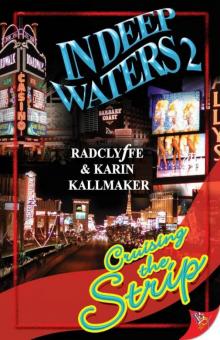 Cruising the Strip
Cruising the Strip Above All, Honor h-1
Above All, Honor h-1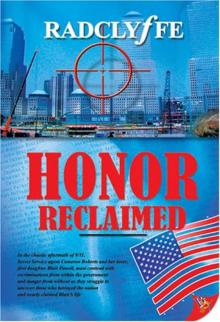 Honor Reclaimed
Honor Reclaimed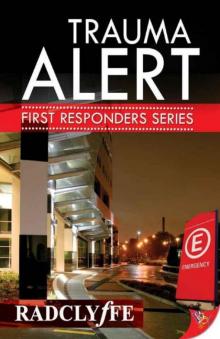 Trauma Alert
Trauma Alert Love On Call
Love On Call Best Lesbian Romance 2014
Best Lesbian Romance 2014 Discovery
Discovery shadowland
shadowland Justice for All
Justice for All Best Lesbian Romance 2011
Best Lesbian Romance 2011 Turn Back Time
Turn Back Time Winds of Fortune
Winds of Fortune Honor Guards
Honor Guards Justice in the Shadows
Justice in the Shadows Love's Tender Warriors
Love's Tender Warriors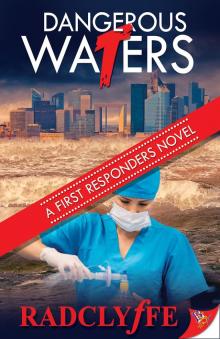 Dangerous Waters
Dangerous Waters First Sight
First Sight By the Light of the Moon
By the Light of the Moon Honor 07 - Word Of Honor
Honor 07 - Word Of Honor Tomorrow's Promise
Tomorrow's Promise Amor and More
Amor and More Best Lesbian Romance 2010
Best Lesbian Romance 2010 Sheltering Dunes (Provincetown Tales Book 7)
Sheltering Dunes (Provincetown Tales Book 7) Love And Honor
Love And Honor Secret Hearts
Secret Hearts Prescription for Love
Prescription for Love Passionate Rivals
Passionate Rivals Against Doctor's Orders
Against Doctor's Orders Radclyffe - Honor 01 - Above All, Honor
Radclyffe - Honor 01 - Above All, Honor Honor 02 - Honor Bound
Honor 02 - Honor Bound Beyond the Breakwater
Beyond the Breakwater Radclyffe - (Honor 5) - Honor Reclaimed
Radclyffe - (Honor 5) - Honor Reclaimed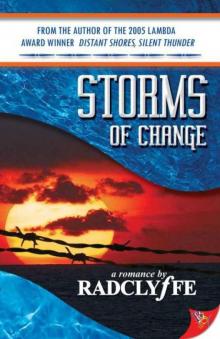 Storms of Change
Storms of Change Honor Bound h-2
Honor Bound h-2 Justice Served
Justice Served Sheltering Dunes
Sheltering Dunes Best Lesbian Romance of the Year
Best Lesbian Romance of the Year Secrets in the Stone
Secrets in the Stone